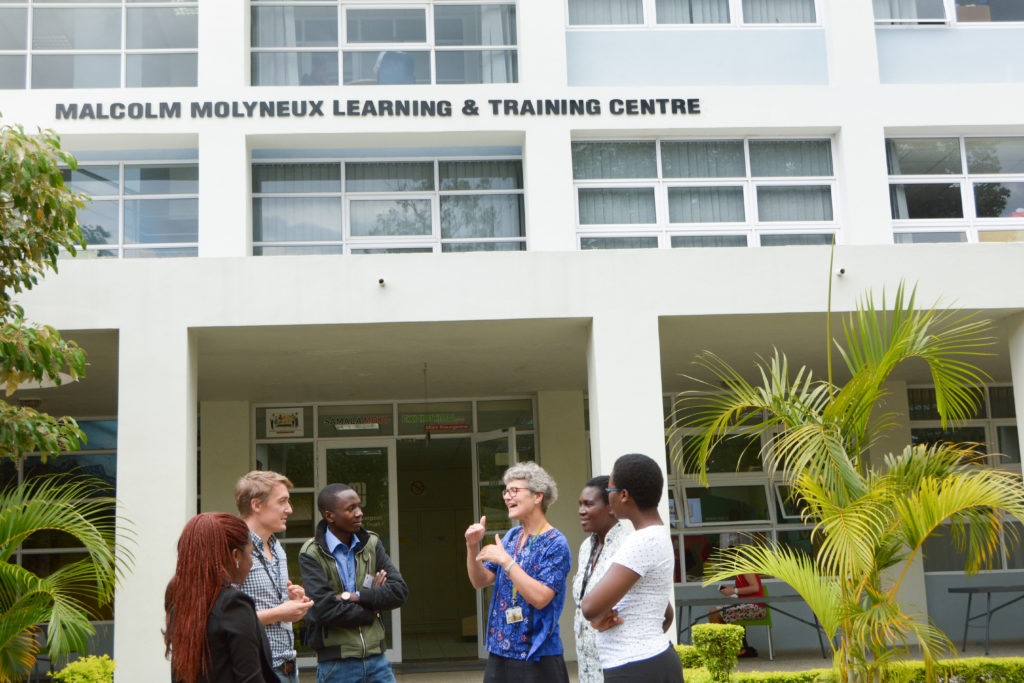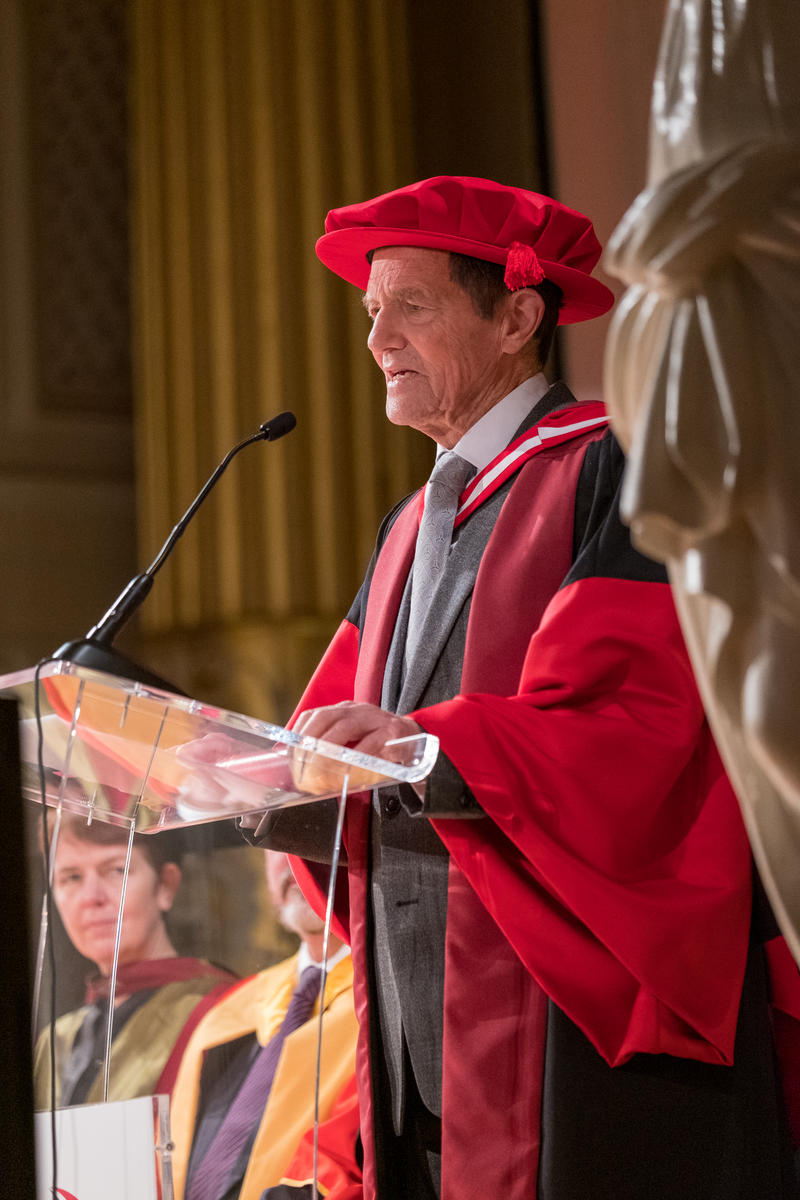
It is with profound sadness that LSTM has to announce the death of one of its truly inspirational staff members: Professor Malcolm Molyneux OBE FmedSci DSc (hon causa), earlier this week in Liverpool.
Born in what is now the Democratic Republic of Congo (DRC) in 1943, he was sent to boarding school at Eltham College, London. He then read natural sciences at St Catherine’s College, Cambridge before taking up his clinical training at St Bartholomew’s Medical School. It was there where he met his future wife, Elizabeth Neech. They both qualified in 1968 and married the following year.
Malcolm Molyneux’s first encounter with Malawi was as a medical student. He visited Malawi briefly at the end of his elective in Durban, South Africa. After specialising in internal medicine, he and his family moved to Malawi where he was transferred from a small mission hospital in Malosa to the main government hospital in Blantyre because there was no medical specialist present at the time.
From 1975 to 1984 Malcolm Molyneux practiced as a specialist at Queen Elizabeth Central Hospital, Blantyre. Despite busy professional and family lives, he completed his Doctor of Medicine thesis on viral determinants of acute and chronic liver disease in Malawi.
Malcolm Molyneux’s relationship with LSTM began in 1984 when, upon returning to the UK from Malawi and after some persuasion by the late LSTM Dean Professor Herbert Gilles, he took up the post of senior lecturer – focusing on malaria.
With that appointment started a lifelong fascination with the disease, with a particular focus on making malaria research relevant to clinical practice and promote the training of Malawian clinicians and scientists.
In 1986, together with Dr Terrie Taylor, he sourced funds to create a research ward sited adjacent to the children’s department of the Queen Elizabeth Central Hospital. This was opened in 1990 and from then until 1994 the research was funded jointly through the Wellcome Trust and the US National Institutes of Health. Over this period, Malcolm was invited by the government of Malawi to serve on the Advisory Panel to establish the College of Medicine which is part of the University of Malawi. This opened in 1991.
In 1993 the Wellcome Trust put out a call for institutions to submit proposals to establish research centres in tropical medicine. Malcolm Molyneux and Professor Peter Winstanley, from the University of Liverpool, in collaborative partnership with the newly established College of Medicine at the University of Malawi submitted a proposal. The proposal was accepted in early 1994 and, later that year, the Wellcome Trust Tropical Centre was established in Liverpool. In 1995 the Molyneux family returned to Malawi in order to establish a research laboratory and the Malawi-Liverpool Wellcome (MLW) programme. His wife, Professor Elizabeth Molyneux, formerly of Alder Hey Children's Hospital, won acclaim for her care of children in Malawi.
As Director, Malcolm always energetically supported training opportunities for Malawian clinicians and scientists. In this and other ways Malcolm Molyneux mentored and promoted Malawian researchers in the college. This has been a major contribution that has enhanced the reputation of the college as a training and research institution of excellence. As a result, the new learning and training centre on campus was named after him.

He was Editor of 'Tropical Doctor', 'Malawi Medical Journal' and its forerunner ‘Medical Quarterly’; and served on committees of the Malaria Control Programme in Malawi, the World Health Organization, and various components of GSK’s candidate malaria vaccine RTS,S.
He was also the Ombudsman for The Lancet. He and his wife Liz, a consultant paediatrician, were both awarded the OBE by the Queen in 2006. They returned from Malawi to live in Liverpool in December 2015, from where they continued to support and collaborate in research and training in Malawi and other low-income countries.
Malcolm joined the Board of Trustees of the Royal Society of Tropical Medicine & Hygiene (RSTMH) in 2017 and was awarded an Honorary Doctor of Science degree by LSTM in December 2019.

On receiving his honorary degree, Malcolm said:
“This is a wonderful day for me. Why am I prouder to be given an honorary degree from LSTM than I would be from any other institution in the world? It is because it stands for what is most important in the world – we are all brothers and sisters and need to recognise our common origin. Collaboration and partnership are what LSTM stands for and it is time for us to be a part of this world and not separate from it.”
Responding to the news LSTM Director, Professor David Lalloo, said:
“All of the many people around the world who knew Malcolm will have been saddened by the news of his death.
As illustrated above, Malcolm’s achievements were considerable and he made an enormous contribution to improving health in Malawi and the region.
But most will remember Malcolm for the kind of man he was. Countless young clinicians and scientists from Malawi and the UK benefitted from the kindness and patience that he demonstrated in advising them on their careers and life generally; doctors who spent brief periods on elective with him in Malawi thirty years ago still talk about the impact he had on them.
Malcolm’s love for life shone through in all that he did; whether in his delight at beating people 30 years his junior at squash or his later enthusiastic conversion to the delights of long-distance cycling, invariably accompanied by keenly observed updates for his friends.
He was notorious for eschewing physical comforts and persisted in expressing bemusement that the medical students he took up Mulanje refused to drink from puddles; his wicked sense of humour was rarely far from the surface and could be expressed with equal facility in English or through Chichewa proverbs.
Malcolm was inspirational in so many ways and put simply, was one of those people who made the world a better place to live in; I feel privileged to have known him.”
LSTM wishes to extend its sincere condolences to Elizabeth, Malcolm’s wife, their children and wider family.